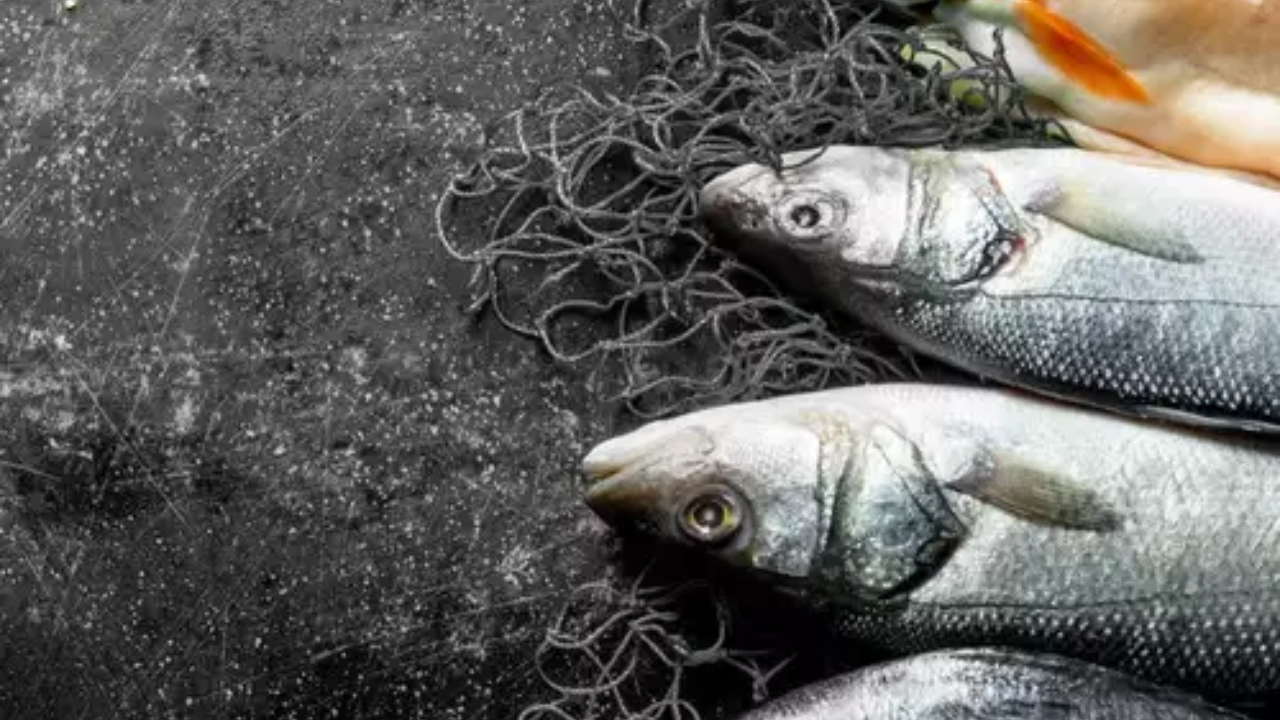NEW DELHI: Thousands of endangered salmon transported by truck to a US river miraculously survived a road crash, fleeing into a nearby creek, officials report.
In a mountainous region of Oregon, a large tanker carrying young salmon, known as smolts, overturned and slid off the road last week. Fortunately, the 53-foot-long truck landed on its roof, conveniently positioned next to a small creek, offering a timely escape route for the slippery passengers.
“About 77,000 smolts made it into the creek when the tanker overturned,” said the Oregon Department of Fish and Wildlife in a statement.
The truck driver sustained minor injuries in the accident on March 29. Regrettably, approximately 25,000 smolts were not as fortunate. They failed to reach the river and had to be retrieved either from the tanker or along the stream bank, as reported by the department.
Chinook salmon face threats from the prolonged drought gripping the American West, exacerbated by climate change. Declining river levels and warmer waters, coupled with the presence of dams and canals, pose additional risks to salmon populations.
Typically, migratory fish like Chinook salmon are born in rivers, migrate to the ocean for maturity, and return to their native rivers to spawn and perish. However, drought-affected rivers with insufficient flow or warmer waters can disrupt this cycle, prompting wildlife officials to transport millions of hatchery-raised juvenile salmon to the sea annually.
Although road transportation of salmon dates back to the 1980s, recent years have seen a significant increase due to declining salmon numbers. The construction of numerous dams and canals in the region has diminished salmon habitats by 80%.
The smolts lost in the recent accident represent approximately 20% of the total released into Oregon’s Imnaha River this year. The 77,000 fish that were propelled into Lookingglass Creek are expected to return in 2026 and 2027, potentially producing 350-700 additional adults.
“This should not impact our ability to collect future brood stock or maintain full production goals in the future,” said Andrew Gibbs, fish hatchery coordinator for Eastern Oregon.
In a mountainous region of Oregon, a large tanker carrying young salmon, known as smolts, overturned and slid off the road last week. Fortunately, the 53-foot-long truck landed on its roof, conveniently positioned next to a small creek, offering a timely escape route for the slippery passengers.
“About 77,000 smolts made it into the creek when the tanker overturned,” said the Oregon Department of Fish and Wildlife in a statement.
The truck driver sustained minor injuries in the accident on March 29. Regrettably, approximately 25,000 smolts were not as fortunate. They failed to reach the river and had to be retrieved either from the tanker or along the stream bank, as reported by the department.
Chinook salmon face threats from the prolonged drought gripping the American West, exacerbated by climate change. Declining river levels and warmer waters, coupled with the presence of dams and canals, pose additional risks to salmon populations.
Typically, migratory fish like Chinook salmon are born in rivers, migrate to the ocean for maturity, and return to their native rivers to spawn and perish. However, drought-affected rivers with insufficient flow or warmer waters can disrupt this cycle, prompting wildlife officials to transport millions of hatchery-raised juvenile salmon to the sea annually.
Although road transportation of salmon dates back to the 1980s, recent years have seen a significant increase due to declining salmon numbers. The construction of numerous dams and canals in the region has diminished salmon habitats by 80%.
The smolts lost in the recent accident represent approximately 20% of the total released into Oregon’s Imnaha River this year. The 77,000 fish that were propelled into Lookingglass Creek are expected to return in 2026 and 2027, potentially producing 350-700 additional adults.
“This should not impact our ability to collect future brood stock or maintain full production goals in the future,” said Andrew Gibbs, fish hatchery coordinator for Eastern Oregon.
Denial of responsibility! Swift Telecast is an automatic aggregator of the all world’s media. In each content, the hyperlink to the primary source is specified. All trademarks belong to their rightful owners, all materials to their authors. If you are the owner of the content and do not want us to publish your materials, please contact us by email – swifttelecast.com. The content will be deleted within 24 hours.


